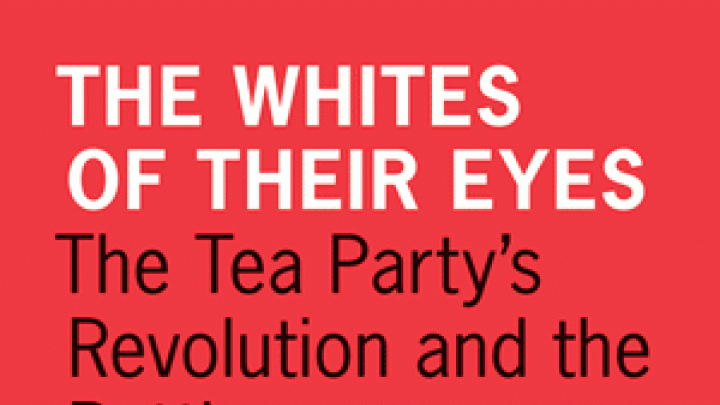The modern Tea Party, like other political movements before it, self-identifies with the spirit that moved eighteenth-century Bostonians to cast imported tea into Boston harbor. In a witty account of the uses and abuses of history—mostly for political ends—Jill Lepore’s new book, The Whites of Their Eyes: The Tea Party’s Revolution and the Battle over American History, describes the recurrent misappropriation of our national heritage since the Revolution and the mythologizing of its “Founding Fathers.” The Kemper professor of American history says the modern “Tea Party” movement is a form of “historical fundamentalism” with reactionary precedents that she recounts in wry detail.
“Historical fundamentalism,” Lepore writes, “is marked by the belief that a particular and quite narrowly defined past—‘the founding’—is ageless and sacred and to be worshipped; that certain historical texts—‘the founding documents’—are to be read in the same spirit with which religious fundamentalists read, for instance, the Ten Commandments; that the Founding Fathers were divinely inspired; that the academic study of history (whose standards of evidence and methods of analysis are based on skepticism) is a conspiracy and, furthermore, blasphemy; and that political arguments grounded in appeals to the founding documents, as sacred texts, and to the Founding Fathers, as prophets, are therefore incontrovertible.”
Lepore identifies the death of the newspaper as a destabilizing influence in American politics, one reason for the rise of the latter-day Tea Party. Even as she points out the ironies and inconsistencies of the Tea Party platform, she musters some sympathy for the cause, in which she sees a “heartbreaking” “nostalgia…for an imagined time…less troubled by conflict, less riddled with ambiguity, less divided by race.…A yearning for a common past…” That common past exists in all its complexity, as Lepore teaches us, but in a partisan age, the nuanced view of American history becomes harder to restore.
A 2005 Harvard Magazine article discussed Lepore and two of her other books for popular audiences.








